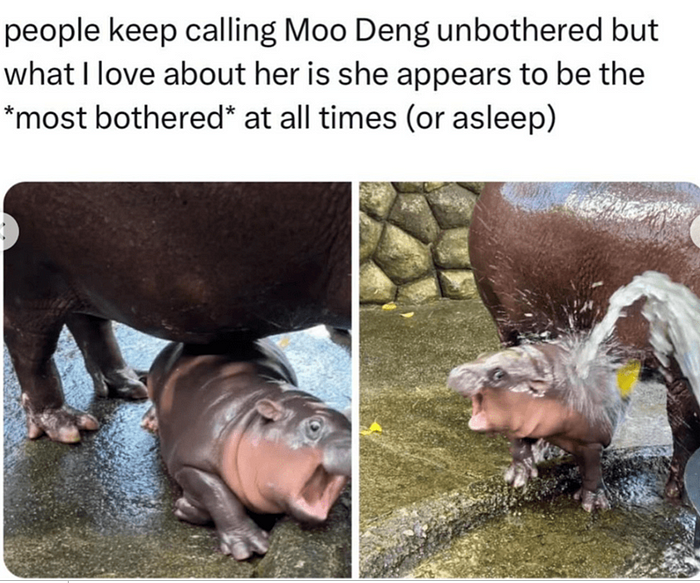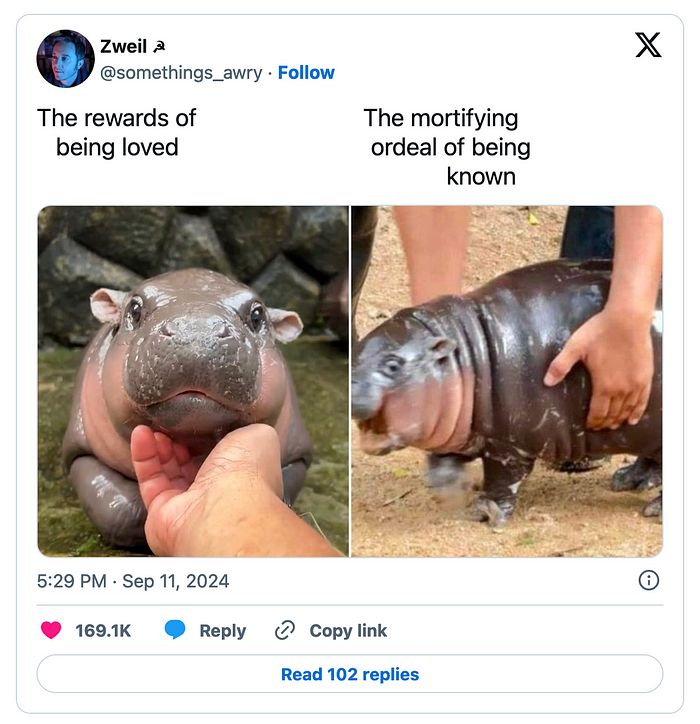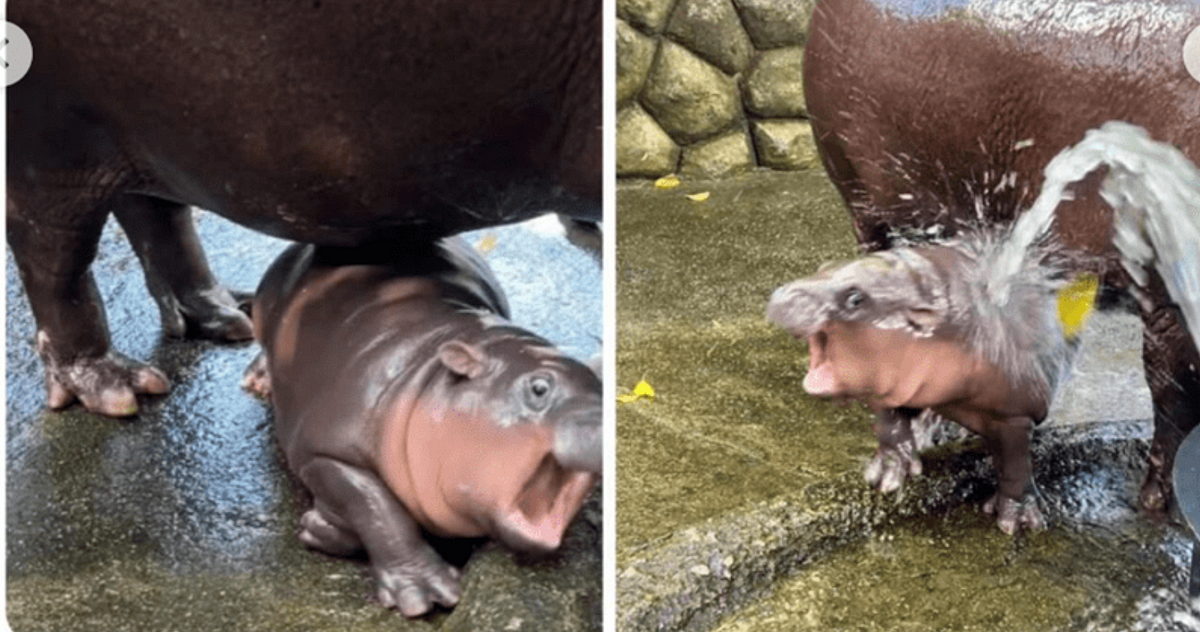👋It's Monday, and we're back
Question #174: Faux Vulnerability, "Publish or Perish," and Universal Needs
Harris·Sockel ( Harris Sockel)
I am an adult, but I have a kinship with a two-month-old hippopotamus named (Moo Deng) transformed into "resilient pork." She is a thick hippopotamus that somehow expresses the weight of surviving in 2024.

Moo's expressive eyes and mouth have inspired fan art, memes, and $100 million worth of cryptocurrency. The Khao Kheow Zoo in Thailand has been documenting her life on YouTube from the very beginning, and they have witnessed a rare phenomenon - weekend visitors increased by 300%, and they are trademarking our resilient LilBébé.
MOO rules. But why did she blow up so quickly?
A few years ago, Tomas Pueyo outlined 12 lessons from building a viral app. The context is completely different, but the principle is the same: we share things that help us convey our identity. The memes that spread the farthest elevate it to another level - they help others communicate their identity (to quote Steve Bryant, “writing for the audience of the audience”). This is why animals and babies have historically ruled the internet. Dogs, cats, hippos, and camels are not political or divisive. They are blank canvases for our souls. They are vehicles for storytelling - people don’t share information or cute images, but rather share stories.
Moo Deng is a gentle hippopotamus, only two months old, and the protagonist of any story you want to tell. She is you, she is me, she is everyone stuck in the muck we are all trying to cope with. I think it’s worth remembering whenever something moves culture. The next time you want to create something that maintains power, consider: how can you help people express something about themselves that they don’t have the tools to express?

What else are we reading
- The term “vulnerability” saturates our culture to the point that sharing anything out of reach (even if you know it will be organized) is also “vulnerable.” As executive coachAlly Sprague explains, true vulnerability risks your reputation in a very real way. Sprague believes that most of us substitute faux vulnerability (“personal”) for true vulnerability (“you might not like my stuff”) - thus, we are shortening our emotional growth.
- Earth Informatics professor Werner Kuhn says what no other scholar is willing to say (at least I haven’t heard it): the academic world is turning intellectuals into content creators. They are stacking articles published in journals that no one reads, so they can keep their jobs. Kuhn quotes Einstein: “I’m not that smart; I just stay with problems longer.” He believes that all humans need trust and space to face problems without feeling pressured to solve them immediately.
Your Daily Practical Wisdom
Behind every negative emotion is a unmet universal need - to deal with emotions, you need to identify and meet the need. Here’s a list of the most common human needs. If you’re feeling off and can’t pinpoint why, ask yourself which one (or several) you’re missing:
- Autonomy
- Collaboration
- Consistency
- Clarity
- Integrity
- Recognition
- Respect
- Reassurance
- Safety
- Support
- Understanding
Still no one has guessed correctly the zoom in Friday's quiz! If you think you know what it might be, email us: tips@medium.com.
Deepen your understanding daily with the Medium newsletter. Sign up here.
Edited and produced by Scott Lamb & Carly Rose Gillis.
Questions, feedback, or story suggestions? Email us: tips@medium.com
Read without limits or ads, fund great writers, and join a community that believes in the power of human storytelling..
